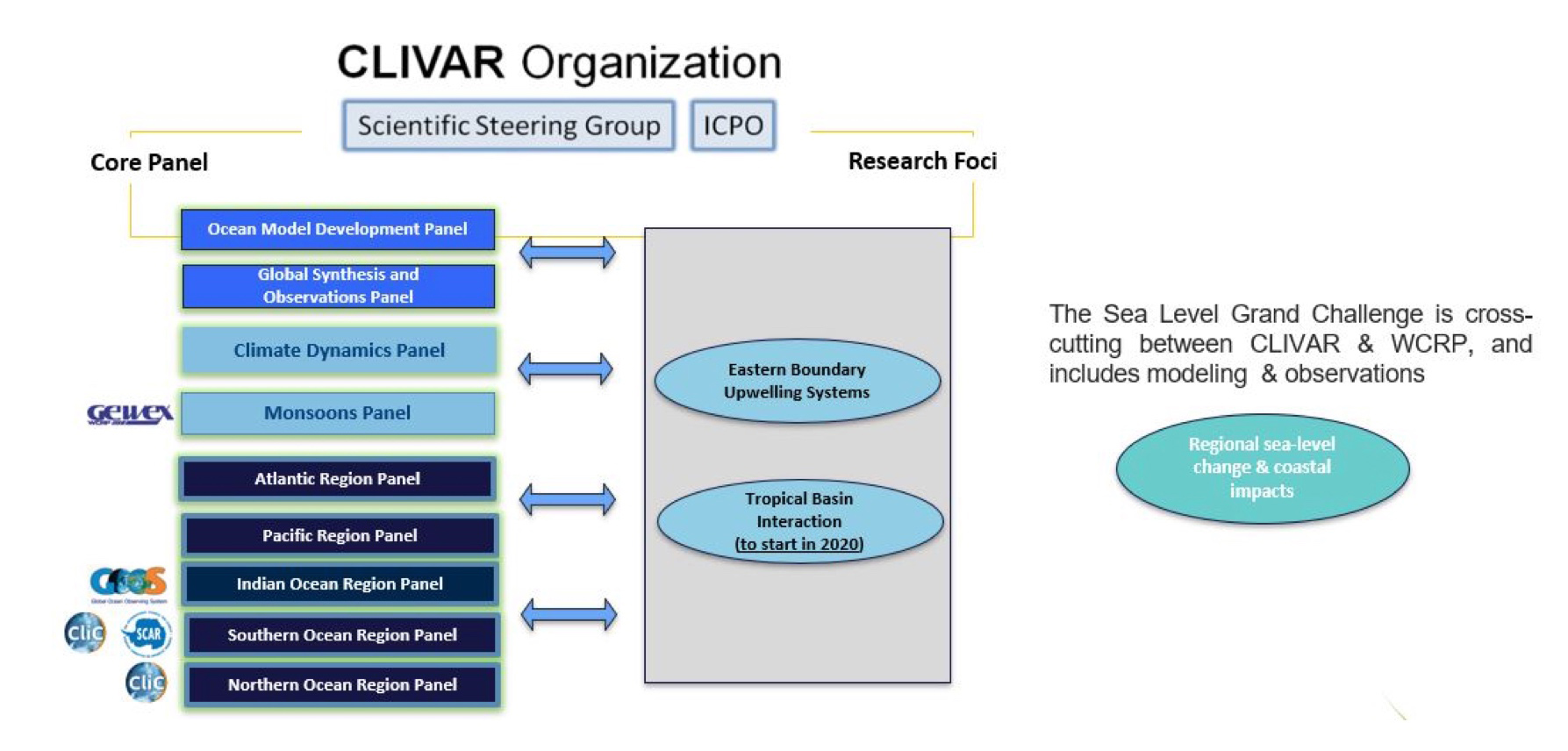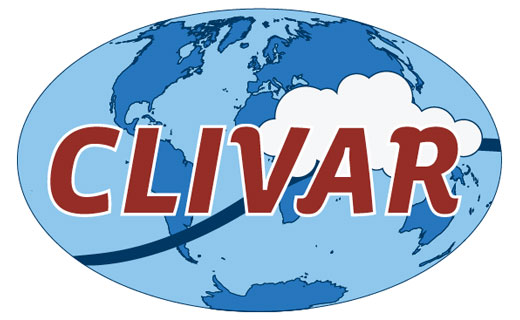CLIVAR website
Building on the successes of the Tropical Ocean – Global Atmosphere Project (TOGA) and the World Ocean Circulation Experiment (WOCE) to further understanding of the ocean circulation and the atmosphere-ocean interactions, CLIVAR, one of the six core projects of the World Climate Research Programme (WCRP) was launched in 1995.
CLIVAR’s mission is to understand the dynamics, the interaction, and the predictability of the climate system with emphasis on ocean-atmosphere interactions. The objective of CLIVAR is to describe, understand and model the dynamics of the coupled climate system emphasizing ocean-atmosphere interactions and to identify processes responsible for climate variability, change and predictability on sub seasonal-to-seasonal, interannual, decadal, and centennial time scales.

CLIVAR facilitates observations, analysis, predictions and projections of variability and changes in the Earth’s climate system, enabling better understanding of climate variability and dynamics, predictability, and change, to the benefit of society and the environment in which we live. CLIVAR also promotes international collaboration and cooperation, thereby enabling global scientific capacity beyond regional and institutional capabilities. The knowledge gained and information facilitated through CLIVAR makes fundamental contribution to knowledge and understanding of the climate system and underpin the provision of climate services that is to the benefit of the society and the environment in which we live.
CLIVAR has various interactions within and outside WRCP. Within WCRP, it works closely with its sister core projects, the Lighthouse Activities and other WCRP working groups. Outside WCRP, CLIVAR depends on the Global Climate Observing System (GCOS) and the Global Ocean Observing System (GOOS), to implement and coordinate observations in support of climate research. CLIVAR also works closely with several other existing projects to strengthen the multidisciplinary cooperation on cross-cutting climate issues, in particular, Intergovernmental Oceanographic Committee (IOC) of the UNESCO, Past Global Changes (PAGES), Integrated Marine Biosphere Research (IMBeR), Surface Ocean - Lower Atmosphere Study (SOLAS), North Pacific Marine Science Organization (PICES) and Future Earth.
The organizational structure of CLIVAR consists of standing Core Panels that advance science and carry out organizational tasks from global to basin scale; and community-driven research foci, that address specific science questions through a limited-lifetime working group format, involving and integrating various CLIVAR panels. Work is coordinated and directed by the Scientific Steering Group (SSG) and supported by the International CLIVAR Project Office (ICPO), which is responsible for the overall management and co-ordination of various CLIVAR activities and acts as the primary interface with the CLIVAR Scientific Steering Group co-chairs and the Director, WCRP. The ICPO is hosted by Ocean University of China, China.
For more information and detailed review of CLIVAR, their various activities and involvement, please visit the CLIVAR’s official website here or contact
Other links:


